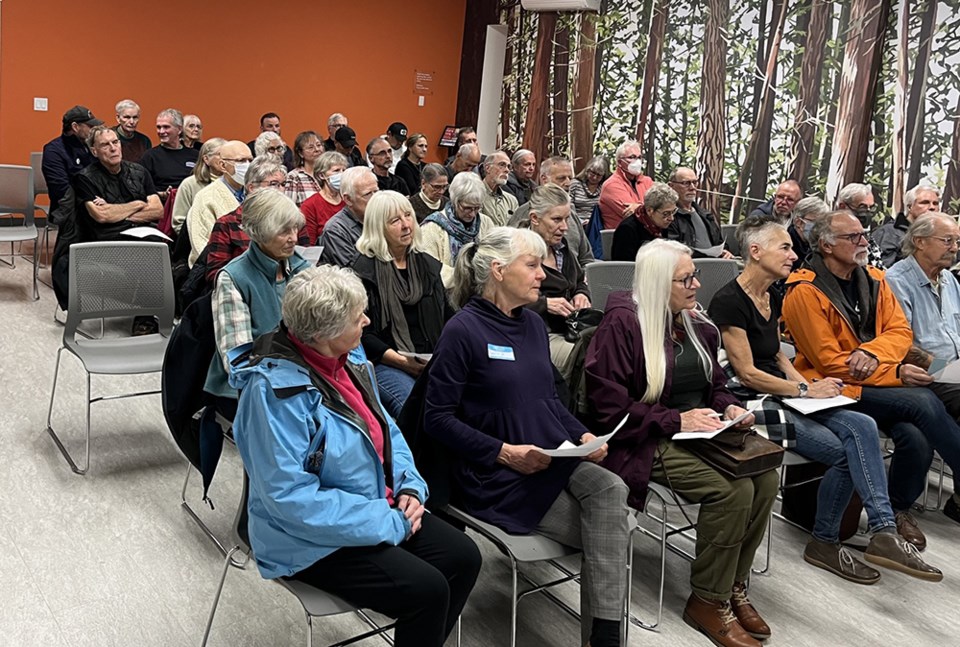Energy Democracy for BC (ED4BC) is working diligently to assist the qathet region in benefitting from profits raised by Powell River Energy Inc (PREI).
The organization, registered as a society in BC, has been in existence for about a year, said president John Keller.
“We were constituted to look at options for generating additional local benefits from the hydroelectricity that was being generated by the dams at Powell River and Lois Lake,” said Keller. “We considered the Columbia Basin Trust as an inspiring model.
“Since then, we have tried to do a number of things to further the mission. Among those, for example, is registering for intervenor status with the BC Utilities Commission (BCUC) in PREI’s attempts to avoid regulation under the Utilities Commission Act.”
Keller said ED4BC has reached out to municipal and regional governments to inform them of the organization’s interests and concerns. He said Powell River-Sunshine Coast MLA Nicholas Simons and North Island-Powell River MP Rachel Blaney have also been informed about what ED4BC is doing.
“We’re trying to get word out to the community that there might be scope here for us to try to fill what we all understand is going to be a fiscal shortfall in the municipal budget as a result of declining tax revenue for the [Catalyst Paper Tis’kwat] mill,” said Keller.
He said ED4BC is opposed to PREI’s bid to step away from BCUC regulation.
“The initial social contract the owners of the dam had here was that they would supply power to the mill, the mill would operate, would pay municipal taxes and would generate employment, all of which ceased with the permanent closure of the mill, and the hydroelectric revenues thereof were not residing in the community in any substantive way,” said Keller. “We don’t have anything in particular against PREI or its ownership structure. We’ve tried to avoid making comments with respect to the amount of tax they may or may not be paying, but we’ve tried to focus on how can the arrangement be changed such that it’s more beneficial for our little community.”
Keller said ED4BC felt if there are dollars being generated by water running through two local dams, that there should be a higher level of local benefits in the form of resources, over and above municipal taxes being paid.
Amazing achievement
Ellen Gould, ED4BC director, said the organization is lucky because they have the Columbia Basin Trust model.
“They went through similar things that we’re going through now,” said Gould. “Given that hydroelectric dams do have negative impacts, how do the people of the local area benefit? There’s quite a process that they went through and we’re sort of trying to follow, relying on them for expertise on how they did it, because it’s an amazing achievement. For what was an economically distressed area, just like ours, now, tens of millions of dollars each year flow into the communities.”
Gould said the influx of money contributes to items such as small business development loans, plus social matters such as housing and daycare.
“There’s a lot of things to really help the economy of the Kootenays and that money keeps having multiplier effects,” said Gould.
In terms of direct discussions with PREI about a trust, Keller said there have not been any conversations.
“We see our role as primarily trying to catalyze a process,” said Keller. “On the one hand, we would like to be engaged with them, but it seemed premature, given the conversations going on at the provincial and municipal levels, on how this might play out.”
Gould said ED4BC would not be at the table negotiating or facilitating any efforts to establish a trust for qathet region dams.
Recently, ED4BC held an annual general meeting, with about 50 people in attendance. In addition to business that needed to be conducted, the highlight of the gathering was a presentation by Dr. Gary Merkel, who was one of the instrumental people in the inception of the Columbias Basin Trust.
“He walked us through how they got to where they are and what the benefits are that they have seen as a result,” said Keller. “I believe people were very appreciative and inspired by what he had to say.”
Keller said his organization would like to see something similar to the Columbia Basin Trust model happening here.
“Circumstances are obviously different here in our region, so it might look different, but the Columbia Basin Trust is the best model that we’re aware of here in BC,” added Keller.
He said the plan would be for residents of qathet Regional District, City of Powell River and Tla’amin Nation to be beneficiaries of the initiative.
“We would want all residents in our area to participate in the benefits,” said Keller.
In the interim, ED4BC has a lawyer representing the society at BCUC hearings in November, arguing why PREI should continue to be regulated.
“It will be exciting times for us,” said Keller, “to see how BCUC rules on that.”
Join the Peak's email list for the top headlines right in your inbox Monday to Friday.



